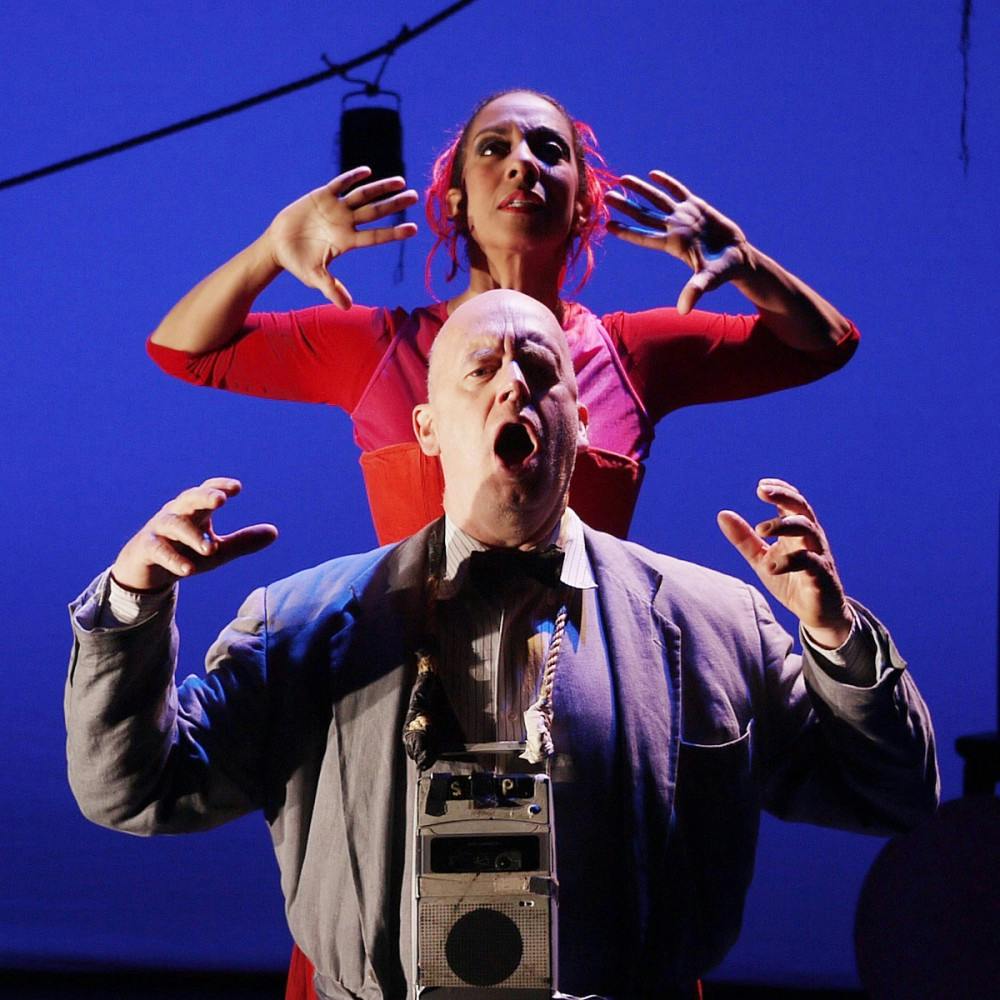The boundaries of reality, truth and memory are pushed so far in “And God Created Great Whales” that the play creates another world in which you could lose yourself.
The set of the show is just as eerie as the premise, with tape recorders hanging from ropes around the stage — their tape hanging out in shreds.
The piano where Nathan sits, trying desperately to record his operatic version of “Moby-Dick” is covered with sticky notes. He must record the opera before his memory fades forever.
Each scene is representative of Nathan’s race against time, beginning with his awakening from sleep and ending with him emotionally engulfed in his creation.
Rinde Eckert’s portrayal of Nathan is so relatable that the audience members may find themselves recalling old memories just to be sure they can still do it.
Eckert’s voice is childlike and detached when he is portraying the lost version of Nathan, yet strong, booming and emotive after reconnecting with Nathan’s true self, and his artistic memory.
This division helps the audience see Nathan’s deterioration and identify with him all the more.
Nora Cole, who portrays Nathan’s imagination and muse, really appears to be part of his mind. Her portrayal of the muse is genuine to the extent that she seems to mirror every part of Nathan that is slowly disappearing.
Both of the performers’ voices are clear, harmonious and beautiful. The musical numbers of the piece are serious and chilling.




